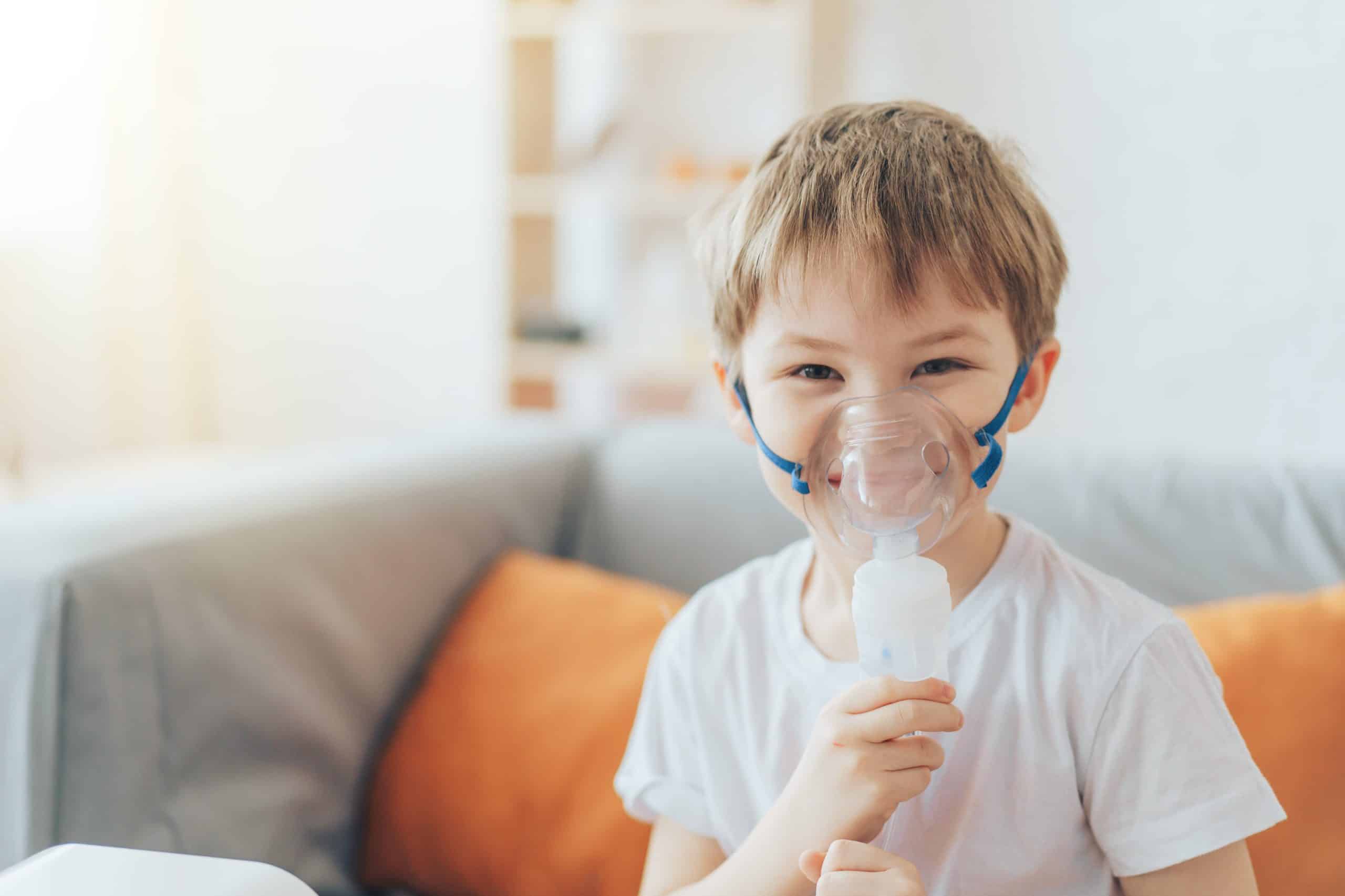Worrying about your children’s health is one of the constants of parenthood. As the cold season arrives, hearing sneezes and sniffles from your little one can immediately toss you into the confusing world of respiratory illnesses – many cases of which are caused by the Respiratory Syncytial Virus (RSV). Like many other viruses, avoidance is key, especially since RSV infection is very common in infants and young children. With the holiday season upon us, there’s no better time to learn all about RSV and what you can do to protect your child from it.
Demystifying Respiratory Syncytial Virus: What is RSV?
Respiratory Syncytial Virus (RSV) is a prevalent virus known for causing respiratory infections, resulting in symptoms akin to those of the common cold. It spreads through respiratory droplets from coughing and sneezing. RSV flourishes in fall, winter, and early spring and can widely affect both infants and older adults alike.
In the United States, the RSV season begins in the fall and peaks in winter, though the COVID-19 pandemic has disrupted this pattern. The implementation of public health measures to decrease the transmission of COVID-19 unintentionally created conditions that favored the spread of RSV. The Centers for Disease Control and Prevention (CDC) estimates that, every year, RSV leads to around 58,000 to 80,000 hospitalizations and causes 100 to 300 deaths in children under the age of five.
While RSV often causes mild cold symptoms in adults and older kids, it can lead to severe cases in newborns and young children. Preemies and kids under 2 with chronic conditions face higher complication risks.
Potential RSV-Linked Health Complications
RSV can lead to more severe infections, such as bronchiolitis or RSV bronchitis, an inflammation affecting the small airways in the lungs. It is also known to cause pneumonia, a condition that occurs when the air sacs in a person’s lungs fill up with fluid or pus. RSV stands out as the primary cause of bronchiolitis and pneumonia among children under 1.
Typically, healthy adults and infants infected with RSV do not need hospitalization to manage the infection. However, some people, particularly infants under six years old, are more prone to severe RSV infection. These high-risk individuals require hospital care if they exhibit difficulties in breathing or signs of dehydration. Usually, hospitalization only lasts a few days.
Recognizing RSV Symptoms in Children
Spotting RSV in children starts with knowing the common symptoms:
- Coughing: This is often the first symptom, ranging from mild to severe, with a wheezing sound. The cough persists for weeks.
- Rapid Breathing: RSV causes breathing problems, flared nostrils, and chest retractions.
For proper diagnosis and faster access to treatments, acquire an evaluation from your pediatrician as soon as possible. Call our dedicated pediatricians if symptoms worsen or breathing difficulties arise.
Prevention is Key: Tips for RSV Avoidance
Preventing RSV infection mainly involves diligent hygiene practices. Here are the most effective preventive measures to avoid RSV:
Read More: Why Are Clean Hands Important for Children
Keep infants away from people with respiratory infection symptoms.
Disinfect toys, cribs, and high-touch surfaces frequently.
Read More: Benefits of Breastfeeding: A Comprehensive Guide for New Parents
Allow fresh airflow to disperse lingering germs.
-
Smoke/pollution avoidance
Effective Treatment Approaches for RSV
Seeing a pediatrician right away allows access to specialized RSV treatments and medications, such as:
1. Nebulized Bronchodilators
Albuterol and epinephrine loosen airways and ease breathing.
2. Oral Steroids
Prednisolone and dexamethasone reduce airway swelling.
3. Ribavirin
An antiviral medication that fights the RSV virus directly.
4. Oxygen Support
5. IV Fluids
Prevents dehydration while providing nutrition.
6. Immunoglobulin Therapy
Antibodies are crucial for fighting infection in high-risk infants.
7. Breathing Support
8. Proper Hydration
Ensure your child stays well-hydrated, as this aids in easing symptoms and expelling mucus.
Read More: The Importance of Hydration: Tips for Keeping Kids Hydrated During Summer
9. Monitoring Oxygen Levels
10. Rest and Comfort
Don’t hesitate to contact your pediatrician whenever symptoms rapidly worsen or breathing problems arise. Timely medical intervention makes all the difference in recovering from severe RSV complications.
The Role of Pediatricians: When to Seek Help
While many parents can adequately manage minor illnesses at home, RSV requires expert medical attention. Consult a pediatrician, especially if:
- Your child is under three months old and exhibits any symptoms.
- Symptoms persist or worsen despite home care.
- Your child struggles to breathe or has a persistent, high fever.
- There’s any doubt or concern about your child’s well-being.
Regular checkups with a trusted pediatrician, like those at Children’s Medical Center of Fresno, ensure better avoidance of potential health issues.
Read More: When You Should Seek Medical Care for Your Child
Frequently Asked Questions About What to Do for RSV
How long does RSV last?
The duration of RSV can vary, but symptoms typically manifest around the fourth to sixth day from infection and gradually improve over one to two weeks. If symptoms persist or worsen, consult a trusted pediatrician.
Can RSV turn into bronchitis?
Yes, RSV can progress to bronchitis, especially if left untreated. Seeking prompt medical attention is crucial to prevent complications. Monitor your child’s symptoms closely.
Is there a vaccine for RSV?
Currently, there is no specific vaccine for RSV. However, ongoing research is being conducted to develop preventive measures. In the meantime, focusing on hygiene, limiting exposure, and seeking early medical attention remain crucial.
Empowered Parenthood in the Face of RSV
In the journey of parenthood, knowledge is your greatest ally. Understanding RSV symptoms and knowing effective treatment methods empower you to navigate the viral challenges that you and your child may face. By recognizing the signs of RSV, practicing preventive measures, and seeking timely medical help, you become a more vigilant guardian of your child’s well-being. Remember, your partnership with medical professionals, such as the dedicated Fresno Children’s Pediatrics team, ensures your child receives the best care when needed.
If you’re looking for a “pediatrician in Fresno” or “Fresno children’s pediatrics,” look no further than Children’s Medical Centers of Fresno. Schedule a pediatric appointment today at (559) 455-1500 or click ”Book an Appointment” for easy access. As one of Fresno, California’s few after-hour pediatric clinics, CMC Fresno prioritizes your convenience. Our doors offer in-person or telehealth pediatric appointments from 5 to 9 PM, Monday to Friday. We also extend our services into the weekends, operating on Saturdays from 9 AM to 3 PM. We ensure accessibility for in-person and telehealth appointments to accommodate your busy schedule and address any unexpected child health concerns.



